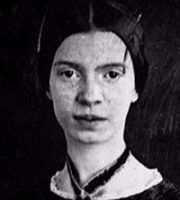by John Dryden
PROLOGUE
I
H E who writ this, not without pains and thought
From French and English theaters has brought
Th' exactest rules by which a play is wrought:
II
The unities of action, place, and time;
The scenes unbroken; and a mingled chime
Of Jonson's humor with Corneille's rhyme.
III
But while dead colors he with care did lay,
He fears his wit or ploThe did not weigh,
Which are the living beauties of a play.
IV
Plays are like towns, which, howe'er fortified
By engineers, have still some weaker side
By the o'erseen defendant unespied.
V
And with that art you make approaches now;
Such skilful fury in assaults you show,
That every poet without shame may bow.
VI
Ours therefore humbly would attend your doom,
If, soldier-like, he may have terms to come
With flying colors and with beat of drum.
SECOND PROLOGUE
I had forgot one half, I do protest,
And now am sent again to speak the rest.
He bows to every great and noble wit;
But to the little Hectors of the pit
Our poet's sturdy, and will not submit.
He'll be beforehand with 'em, and not stay
To see each peevish critic stab his play:
Each puny censor, who, his skill to boast,
Is cheaply witty on the poet's cost.
No critic's verdict should of right stand good;
They are excepted all, as men of blood;
And the same law should shield him from their fury
Which has excluded butchers from a jury.
You'd all be wits—
But writing's tedious, and that way may fail;
The most compendious method is to rail;
Which you so like, you think yourselves ill us'd
When in smart prologues you are not abus'd.
A civil prologue is approv'd by no man;
You hate it as you do a civil woman:
Your fancy's pall'd, and liberally you pay
To have it quicken'd, ere you see a play;
Just as old sinners, worn from their delight,
Give money to be whipp'd to appetite.
But what a pox keep I so much ado
To save our poet? He is one of you;
A brother judgment, and, as I hear say,
A cursed critic as e'er damn'd a play.
Good salvage gentlemen, your own kind spare;
He is, like you, a very wolf or bear.
Yet think noThe'll your ancient rights invade,
Or stop the course of your free damning trade;
For he, he vows, at no friend's play can sit,
BuThe must needs find fault to shew his wit.
Then, for his sake, ne'er stint your own delight;
Throw boldly, for he sets to all that write:
With such he ventures on an even lay,
For they bring ready money into play.
Those who write not, and yet all writers nick,
Are bankrupt gamesters, for they damn on tick.
EPILOGUE
The Prologue durst not tell, before 'twas seen,
The plot we had to swinge The Maiden Queen ;
For had we then discover'd our intent,
The fop who writ it had not giv'n consent,
Or the new peaching trick at least had shown,
And brought in others' faults to hide his own.
That wiThe has been by his betters taught,
When he's accus'd to shew another's fault.
When one wit's hunted hard, by joint consent
Another claps betwixt and does prevent
His death, for many hares still foil the scent.
Thus our poor poet would have scap'd today,
But from the herd I singled out his play.
Then heigh along with me—
Both great and small, you poets of the town,
And Nell will love you, [f]or to run him down.
SONG
I
I FEED a flame within, which so torments me,
That it both pains my heart, and yet contents me:
'Tis such a pleasing smart, and I so love it,
That I had rather die then once remove it.
II
YeThe for whom I grieve shall never know it;
My tongue does not betray, nor my eyes show it:
Not a sigh, nor a tear, my pain discloses,
But they fall silently, like dew on roses.
III
Thus to prevent my love from being cruel,
My heart's the sacrifice, as 'tis the fuel:
And while I suffer this, to give him quiet,
My faith rewards my love, tho' he deny it.
IV
On his eyes will I gaze, and there delight me;
Where I conceal my love, no frown can fright me:
To be more happy, I dare not aspire;
Nor can I fall more low, mounting no higher.





